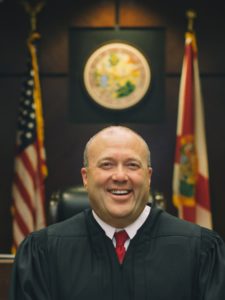
Route to becoming lawyer tests applicant’s fitness
Ask Judge Smith
 Judge Layne Smith
Judge Layne Smith
Q. Judge Smith, how do people become lawyers? Thank you, Freda
A. Freda, some say that lawyers, being reptiles, are hatched. Others say, based on the sheer numbers of them, lawyers are produced at manufacturing plants.
All kidding aside, becoming a lawyer is like running a gauntlet — more marathon than sprint. The pathway to bar membership is a filter that protects the public by screening the people who become licensed attorneys. It is designed to weed out those who’ll lack the necessary competence, moral character, and fitness.
Aspiring lawyers must earn bachelor’s degrees, achieve high scores on the Law School Admissions Test, and successfully compete with other applicants to gain admission to law schools. Law school admission committees focus heavily on academics, test scores, and character. Having well-rounded and diverse classes is an important consideration, too. It takes three academic years to earn a law degree.
Each state licenses and regulates the members of its bar. Before a lawyer can be licensed, he or she must demonstrate a functional understanding of the state’s law and its rules of procedure.
Because character always matters, state bars conduct extensive character investigations to screen applicants for fitness issues. Fitness includes good morals, self-control, lawfulness, financial responsibility, and mental health stability.
Evaluating someone’s fitness to practice law requires a careful balance between extending grace to people who’ve made mistakes and adequately protecting the public. This includes considering and addressing applicants’ mental health and substance abuse issues.
Being a lawyer is a position of trust that requires competence, honesty, and reliability. Bar applicants deemed by a state’s bar to lack the good moral character and fitness to practice law will be denied membership in that state’s bar.
The bar applicants who are deemed morally sound and fit must pass the state’s bar examination, a multi-state bar examination, and a legal ethics test. Not everybody can meet these strict requirements.
The legal profession protects the public by screening law students and applicants for bar membership. Future columns will focus on the duties licensed lawyers owe to their clients and to their state bars.
J. Layne Smith is a Leon County Judge who speaks and writes about civics, law, and the administration of justice. Email your questions to askjudgesmith@gmail.com.







